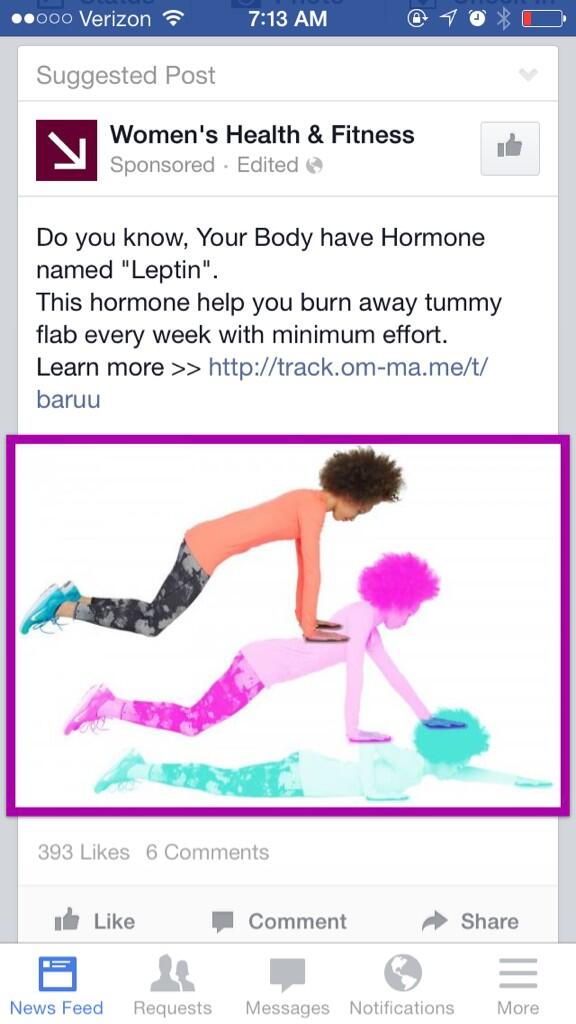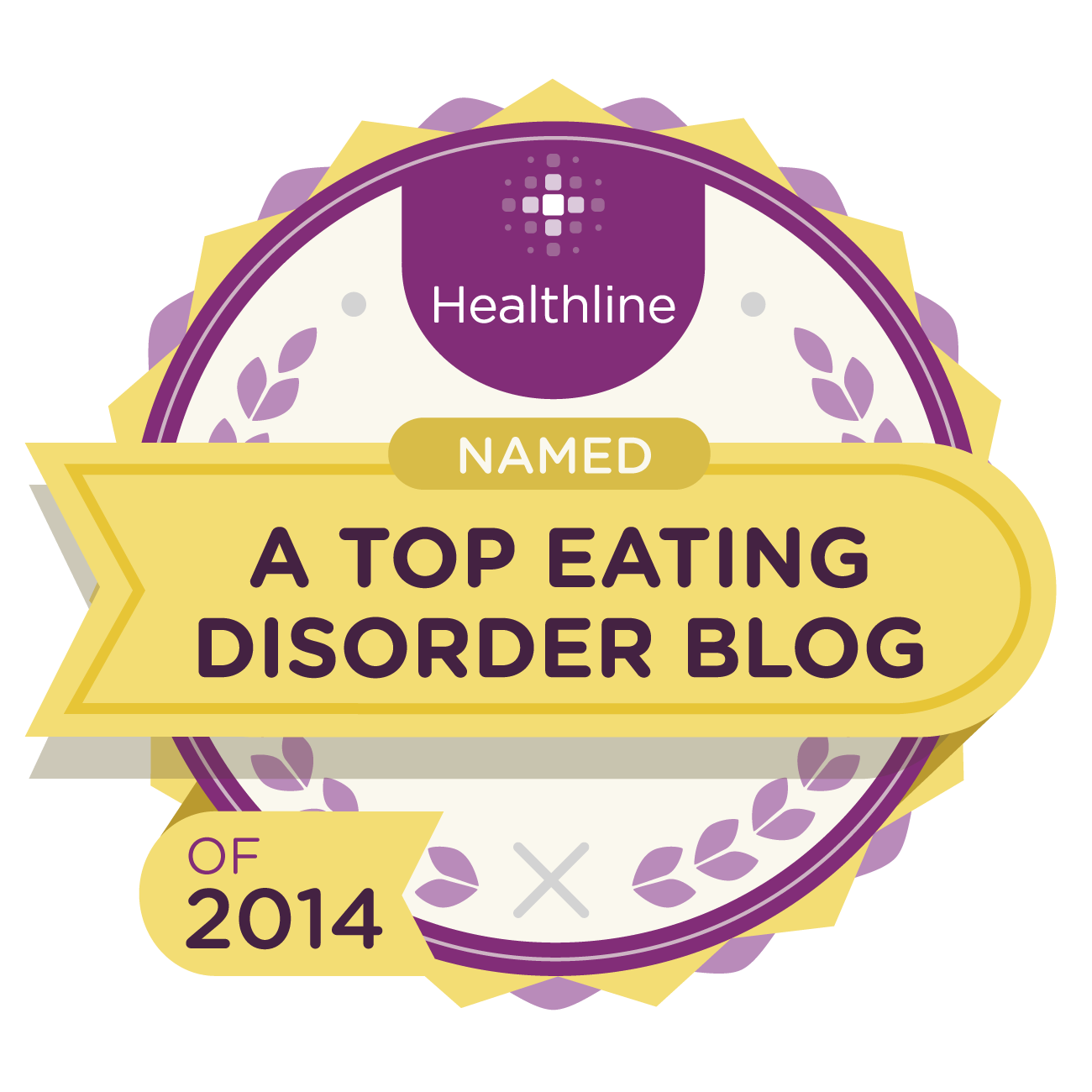As I blogged about recently, a study earlier this year found that Facebook use was associated with an increased risk for disordered eating. While there are likely multiple pathways associated with this relationship, let's take a critical look at some of the ads that might pop up on your daily Facebook feed. I hope that I get more of these body-negative ads than the general public due to the content I post, but I might be wrong.
Here's one from a site called "Women's Insight" with not much insight at all. The model, pictured doing a leg abduction exercise is said to be ridding herself of "muffin top" belly fat. I'd say wrong exercise, wrong body part, except for the fact that there is no exercise that reduces fat in any part - exercise simply doesn't work that way.
Same deal for this one. No one gets a flat belly through abdominal exercises. And yes, most "regular" fitness instructor do know about crunches.
How about this one? That pesky "female metabolism" is just like a glazed donut shackled to your arm. True, diets don't work, but most women also aren't manacled to a Krispy Kreme. This ad comes from the same folks whose picture of a cellulite "cure" depicts rubbing an unpeeled orange down one's thigh.
And how about this before and after picture? What did she just transform?

And finally, this graphic, which pictures women doing push-ups(?) on top of one another to illustrate the hormone, leptin, can't even get its grammar right.
Facebook ads are misleading and destructive. While most people who read my blog can likely see past the hype, the reality is, many can't - just read the comments from people who are ready and willing to sign on to these products and programs. Even for those of us who aren't so easily swayed, the messages collectively seep into our unconscious minds, further indoctrinating us with the thin ideal and that our bodies, as is, are unacceptable.
Want to inoculate yourself against these harmful messages? Be critical consumers. Hide the ads from your feed (unless you're using them for blogging content, like me). Don't buy (or buy into) what they're selling. And finally, call them out.
p.s. My book is AVAILABLE NOW!!!! on Amazon and Barnes and Noble in paperback and Kindle formats. Check it out, and if you like it, please review on these sites!






